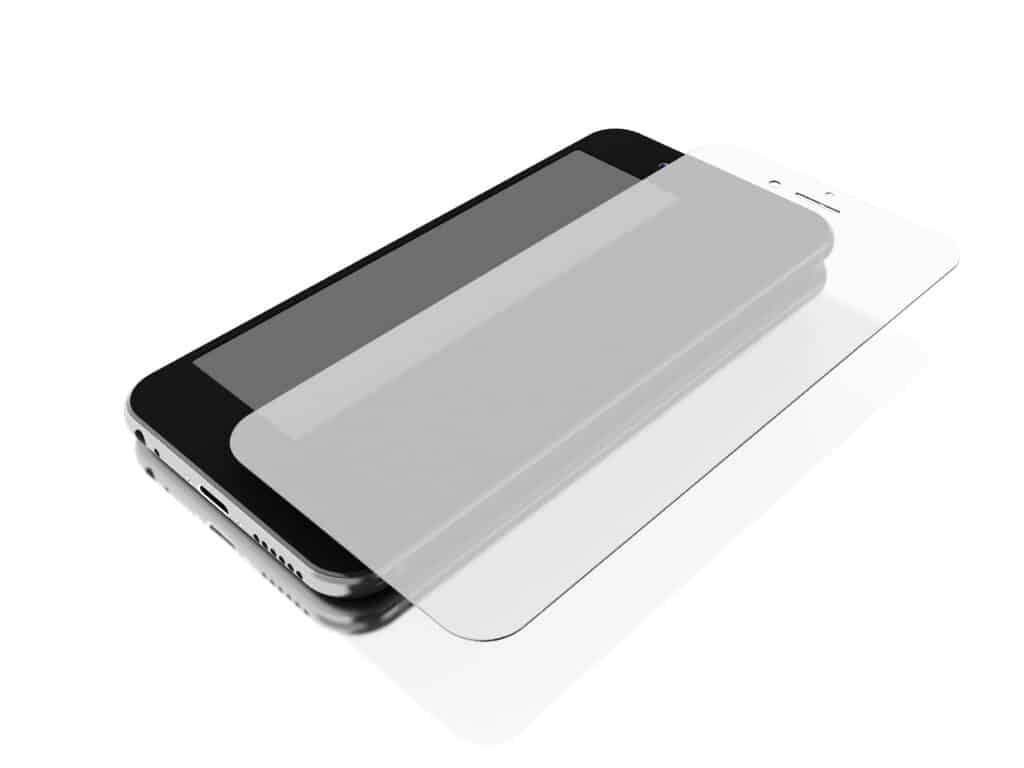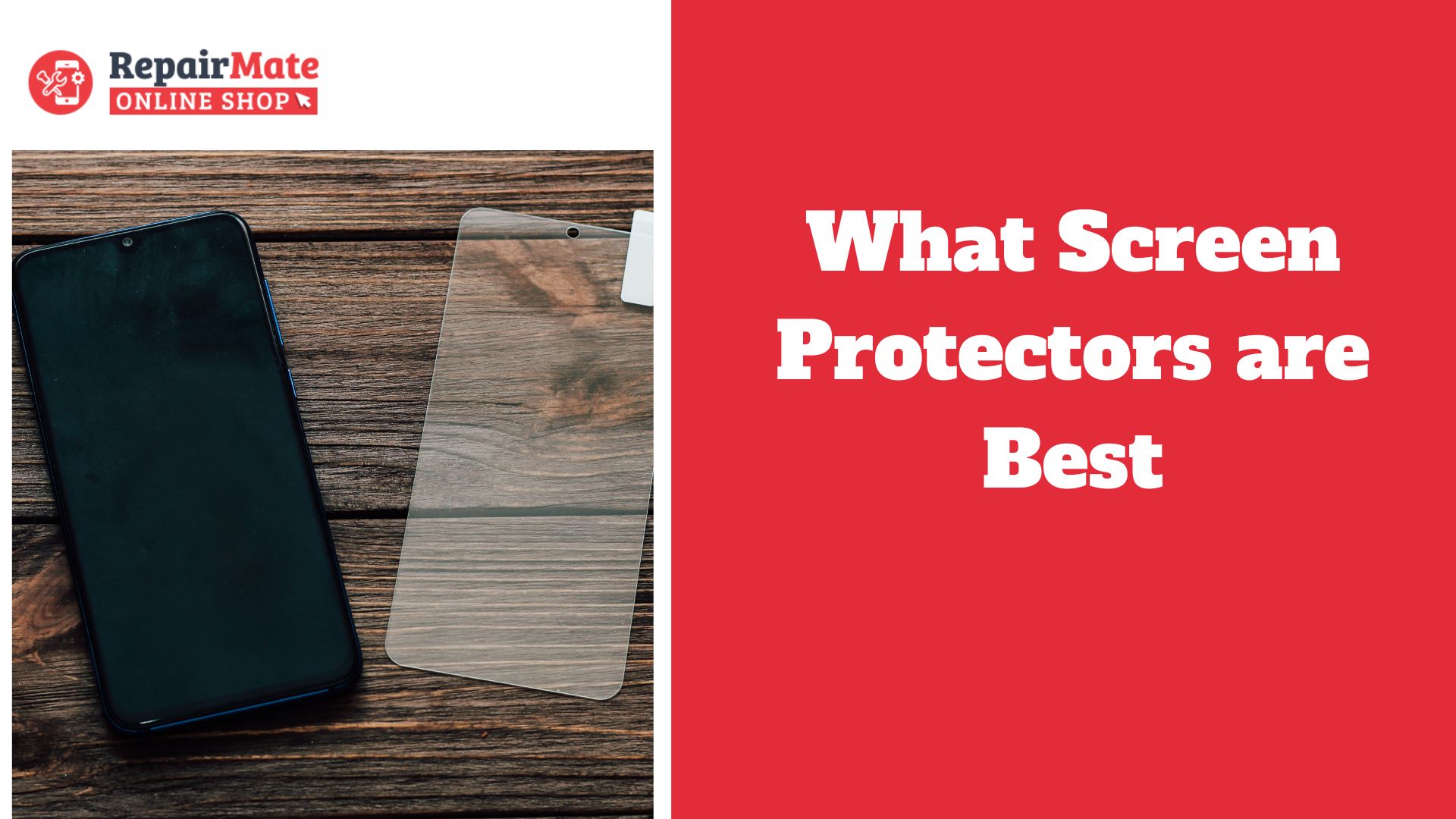Screen protectors serve an important part in protecting smartphones by adding an extra layer of protection against scratches, cracks, and other damage. They contribute to the screen’s longevity and visual clarity. With everyday use and the possibility of accidental drops or abrasions, screen protectors are a cost-effective alternative to avoiding costly repairs or replacements.Consumers have a variety of screen protector alternatives, including tempered glass, PET film, TPU film, and hydrogel. This diversity might be overwhelming, causing misunderstanding regarding which type provides the most protection. Each alternative has unique features and benefits, making it difficult for consumers to decide the best option for their device.
When choosing a screen protector, important aspects to consider are compatibility with your device, thickness for protection and touch sensitivity, clarity for clear viewing, durability against scratches and impacts, ease of installation, and pricing. Ensure compatibility and prioritize qualities such as durability and clarity to get the finest protector for your smartphone. Furthermore, assessing your budget and preferred degree of protection is critical in choosing the appropriate decision.
Understanding Different Types of Screen Protectors
Various types of screen protectors include tempered glass, UV liquid glue, and hydrogel. Each type has various advantages, such as scratch resistance, flexibility, and self-healing capabilities.
Tempered glass Screen protector
Tempered glass screen protectors are reinforced glass, which provides strong protection against scratches and impacts. With a thickness ranging from 0.3 to 0.5mm, they preserve touchscreen sensitivity while also maintaining life expectancy. Their exceptional clarity ensures screen visibility, and they are simple to install. Despite their moderate to high price range, their ability to adequately protect screens makes them a popular alternative for smartphone users looking for dependable protection against regular wear and tear.
UV liquid glue Screen protectors
UV liquid glue screen protectors connect to the phone screen by fixing a liquid adhesive using ultraviolet light. They provide complete coverage and self-healing properties for scratches. They maintain touchscreen sensitivity and clarity despite their tiny profile. Installation can be challenging, necessitating precise alignment and UV curing. While they offer superior protection, the application process may be more difficult than with standard screen protectors.
Hydrogel Screen Protectors
Hydrogel screen protectors are made of a flexible polymer that provides excellent shock absorption and scratch resistance. They have self-healing qualities, so minor scratches can fade with time. With a thickness ranging from 0.2 to 0.3mm, they maintain touchscreen sensitivity while providing strong protection. Installation can be moderate, needing careful application to avoid bubbles. Despite their moderate to high price, hydrogel protectors provide long-lasting protection for your device’s screen.
Factors to Consider When Choosing a Screen Protector:
- Compatibility with your device: Check that the screen protector is specially intended for your smartphone model to ensure a perfect fit and sufficient coverage.
- Thickness for protection and touch sensitivity: The thickness of the screen protector influences both the level of protection it provides against scratches and impacts and the responsiveness of the touchscreen.
- Clarity for clear viewing: Look for a screen protector that preserves the clarity of your device’s screen, allowing you to experience sharp, clear graphics without distortion.
- Durability against scratches and impacts: Choose a screen protector with high durability to successfully protect your device from scratches, cracks, and impacts, extending its life.
- Ease of installation: Select a screen protector that is simple to install, especially with bubble-free application, to ensure a hassle-free and seamless installation process.
- Price: Consider your budget and compare it to the features and quality of the screen protector to choose the greatest value for your money.
Benefits of Tempered Glass Screen Protectors:
Let’s explore the different advantages of Tempered Glass screen protectors.
Scratch Resistance
Tempered glass screen protectors are highly scratch resistant, avoiding damage from ordinary objects like keys or coins and keeping your screen looking new for longer.
Impact Absorption
They absorb shock from accidental drops or hits, lowering the likelihood of cracks or fractures in your device’s screen and maintaining its long-term endurance.
Clarity and Touch Sensitivity
Tempered glass protectors maintain high transparency, allowing clear visibility of your screen while retaining touch sensitivity for smooth and responsive interaction.
Easy to install
Tempered glass protectors are simple to install and leave no bubbles or residue, providing customers with a hassle-free experience.
Benefits of UV liquid glue Screen protectors
Let’s explore the different advantages of Tempered Glass screen protectors.
Full Coverage
UV liquid glue screen protectors cover your device’s whole screen, protecting it from scratches, cracks, and other damage.
Self-Healing Capabilities
These protectors may repair minor scratches over time, resulting in a smooth and immaculate screen appearance and longer-lasting protection.
Thin Profile
Despite their extensive coverage, UV liquid glue protectors keep your device’s clean appearance intact without adding significant bulk.
Strong Adhesion
The liquid adhesive makes a strong bond with the screen, preventing peeling or lifting and providing continuous protection for your device.
Benefits of Hydrogel Screen Protectors
Let’s explore the different advantages of hydrogel screen protectors.
Flexible Protection: Hydrogel screen protectors cling to your device’s curved edges, providing full coverage while protecting against scratches, cracks, and impacts.
Self-Healing Technology: Hydrogel protectors have the ability to repair tiny scratches and abrasions over time, resulting in a smooth and perfect screen surface.
Enhanced Clarity: These protectors maintain a high level of transparency, allowing you to see your screen clearly while maintaining touch sensitivity for smooth and responsive interaction.
Impact Absorption: Hydrogel material absorbs shock from accidental drops or hits, lowering the chance of screen damage and assuring long-lasting durability.

Here’s a comparison table for the different types of screen protectors discussed in the blog article:
Feature | Tempered Glass | UV liquid Glue | Hydrogel |
Scratch Resistance | High | Moderate | High |
Impact Absorption | High | Moderate | Moderate |
Clarity | Excellent | Good | Good |
Touch Sensitivity | Maintained | Maintained | Maintained |
Self-Healing Properties | No | Yes | Yes |
Ease of Installation | Simple | Moderate | Moderate |
Price | Moderate to High | Moderate | Moderate to High |
Thickness | 0.3 – 0.5mm | Varies | 0.2 – 0.3mm |
Coverage | Full | Full | Full |
Material | Reinforced Glass | Liquid Glue | Flexible Polymer |
Durability | High | Moderate | Moderate |
Compatibility | Generally Compatible | Generally Compatible | Generally Compatible |
Frequently asked questions
Which type of screen Protector is best?
Individual preferences and needs must be considered while determining the “best” screen protector. Tempered glass protectors are popular due to their high scratch resistance and clarity. UV liquid glue protectors, on the other hand, provide complete covering and self-healing capabilities, whereas hydrogel protectors provide flexible protection and impact absorption. To choose the finest protector for your device and lifestyle, consider variables such as scratch resistance, clarity, durability, and budget. You might be confused about where to get screen protectors? Look no further! Repair Mate Online Shop offers high-quality screen protectors at cheap costs. “Protect your device with confidence today.”
Are Screen Protectors really worth it?
Yes, screen protectors are worthwhile since they protect your device’s screen from scratches, cracks, and other damage while maintaining its integrity and look. By investing in a screen protector, you may extend the life of your smartphone or tablet while avoiding costly repairs or replacements. Screen protectors also provide peace of mind, allowing you to use your gadget confidently without fear of accidental harm damaging its functioning or beauty.
Does tempered glass protect the screen from cracking?
Tempered glass screen protectors are good in preventing screens from cracking. They operate as a protective barrier against impacts and equally disperse force, lowering the possibility of screen cracks or fractures. Tempered glass protectors reduce damage caused by accidental drops or collisions by absorbing shock and adding an extra layer of strength, ensuring the screen remains intact and usable for longer periods of time.
Conclusion
Screen protectors plays an important role in protecting smartphones from scratches, cracks, and other damage, extending their lifespan and maintaining visual clarity. Consumers can choose the best fit for their device and preferences from a variety of options such as tempered glass, UV liquid glue, and hydrogel. Users can make an informed decision by taking into account elements such as compatibility, durability, and pricing. Finally, investing in a screen protector is important, as it provides piece of mind and protection from ordinary wear and tear. Remember that prioritizing screen protection can save you money on repairs and keep your gadget in good working order for extended periods



